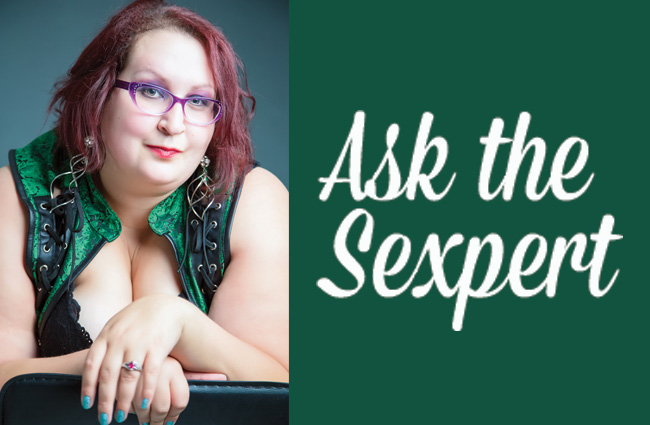What’s in a Name?

Shanna Katz, M.Ed, ACS is a queer, kinky, board certified…
Dear Shanna,
Sometimes I get really stuck with the terminology used by folks in the community. I know lesbians who use the term “wife” even though they aren’t married, and lots of married people prefer the term “partner.” Some people use boyfriend or girlfriend to refer to someone casual, while others mean their lifelong lover. What gives?
Needing a Dictionary, Erie.
Dear Needing a Dictionary,
Language is tough, period. Even if you think about the queer community, or LGBTQIAA, or alphabet soup of identities, everyone has their own set of labels and language that fits them … and that’s exactly how it should be. Even when someone uses a “traditional” label like bisexual, it might mean different things to different people. More recently, we’ve seen an uptick in the diversity of labels people are using to refer to their sexual orientation and gender identities, including pansexual, omnisexual, genderqueer, genderf*cker, gender non-conforming, demi-girl, homoflexible, the list goes on. In these cases, if you don’t know what someone means, the best thing you can do is (politely) ask. Saying “Oh, cool, I’ve never heard that term before — can you tell me how you define it/what it means to you?” lets people know you’re interested in learning about their identity and are willing to expand your current knowledge. Of course, you have to be ok with them declining to talk about it.
Regarding partners — sexual, relationship, and otherwise — labels can be complicated enough for even straight folks. While most people inherently know what husband and wife may mean, terms like boyfriend and girlfriend seems reductionary to call someone you’ve been dating for years (especially when you’re no longer in your teens and 20s), regardless of whether you ever plan to marry. Add in the LGBTQIAA factor, where some people don’t have access to certain types of partnership like marriage and the corresponding language (“This is my civilized union buddy so-and-so” just doesn’t roll off the tongue, for example), and it just goes crazy. Ditto for those who are in a relationship with more than one person. What happens here? People develop their own language, or at the very least, their own definitions to try and explain the relationship between them and others.
There is also the issue of social convention. While you and someone else might be just fine using the term f*ck buddy or “friends with benefits,” that might not be the way you want to introduce them to your boss or your great uncle Steve. Instead, the ambiguous “partner” can be a great fit. However, for couples that appear straight (like bisexual folks, queer folks, and/or trans* folks in straight-appearing relationships), using the term partner might get read as business partner (it’s happened to me more than once), so while partner is certainly the most adjustable term, it does have its problems. Using wife (or husband) without being married is some peoples’ response to not having the ability to legally get married while for other people, it just emphasizes the seriousness of the relationship. Still for others, it’s just a fun way to refer to someone they care about.
As with identities, the best things you can do are:
a) honor the language that people use. If someone says “This is my partner,” don’t introduce them later as José and his husband.
b) hold space for conversations about relationships. If a friend introduces someone as their life partner/love bug/sugar muffin/sex puppy, ask them to tell you about their relationship, how they met, how long they’ve been together, what things they like to do together, and so on.
That’s what you’re really wanting to know when you hear a label, so rather than trying to box someone in, having a conversation about their experiences will likely get you the information (and connection!) you want.
Best of luck!
Shanna.
What's Your Reaction?
Shanna Katz, M.Ed, ACS is a queer, kinky, board certified sexologist, sexuality educator and author. From topics like vaginal fisting to non-monogamy, and oral sex to how sexuality and dis/ability intersect, she talks, writes and teaches about the huge spectrum of sexuality, both from personal and professional perspectives. She’s using her Master’s of Sexuality Education to provide accessible, open-source sex education to people around the country. For more info, please visit her sexuality education site, ShannaKatz.com.










